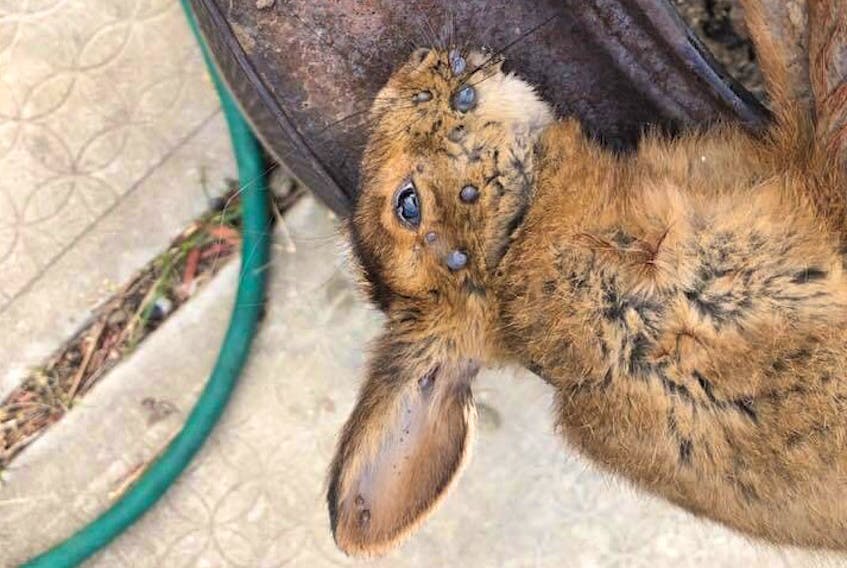While people should be wary of ticks, the risk of contracting Lyme disease is still quite minimal on the island of Newfoundland, say current and former provincial veterinarians.
Dr. Laura Rogers, the province’s chief veterinary officer, said an article published by Saltwire Network last month about a confirmed case of a Lyme disease-infected tick may have been a bit alarmist.
The tick was found on a feral cat in the southwestern corner of the island. The cat was not sick with the disease and, as Rogers noted, it would be rare for cats to contract Lyme disease as it is an illness that normally only affects humans and dogs.
RELATED: Lyme-positive tick confirmed in western Newfoundland
“It’s very rare, even in areas where Lyme disease is quite prevalent that a cat would actually experience symptoms and get sick from the disease,” said Rogers.
She confirmed there have been 53 ticks submitted to the province this year for testing. Of those, 32 were black-legged or deer ticks – the only species of ticks that carry Lyme disease.
Black-legged ticks are not native to Newfoundland and Labrador and do not have a breeding population on the island. They do find their way to Newfoundland on migratory songbirds or could be carried back from the mainland by travelling people and pets.
Of the 32 black-legged ticks sent to the lab for testing, only one – the one found on the feral cat in the Port aux Basques area – has tested positive for Lyme disease.
“The numbers we seem to be getting this year are actually a little lower than in previous years, though we’re not through the year yet,” said Rogers.
Rogers said the submitted ticks have come from scattered places all across the island. Although, they do tend to follow the patterns of migrating songbirds, she said areas they’ve come from are more representative of populated areas since people do have to find them to send them in for testing.
“If we get more ticks this year, it may just reflect that people are more aware and are sending them in to us, rather than an actual increase in how many there are,” she said. “It’s difficult to draw inferences from the submissions we get, knowing that it’s biased towards where people are more than where the disease might be.”
Dr. Hugh Whitney, who retired from the chief veterinarian office in late 2015, also wanted to ease a couple of concerns raised in the article.
He questioned the mention of there being two cases of humans being diagnosed with Lyme disease in Newfoundland in 2015. Whitney noted the province’s health department reported in 2018 that there have been eight diagnosed cases in the province since 1991, but that all of these infections were actually contracted outside the province. The people were not diagnosed until they had returned to Newfoundland.
Rogers confirmed the two cases reported in 2015 involved people who had contracted Lyme disease outside of Newfoundland before returning.
Also, the article was published with a photo of a tick-ridden snowshoe hare, however, those ticks were not the kind that carry Lyme disease.
While there is no permanent population of the black-legged tick, there are many breeding tick species found on the island that are of little consequence to people or their pets, with common names being the rabbit tick, mouse tick, squirrel tick, vole tick and seabird tick. The names indicate the mammals the ticks have tendencies for.
While some of those may bite humans, none carry Lyme disease.
While Whitney and Rogers both agree people should watch out for ticks in the rare chance it might be a wayward black-legged tick that managed to find its way to the island, the chances of someone contracting Lyme disease in Newfoundland remains quite low.
“It’s not all hype, but Lyme disease carries a lot of drama with it, unnecessarily,” said Whitney.









